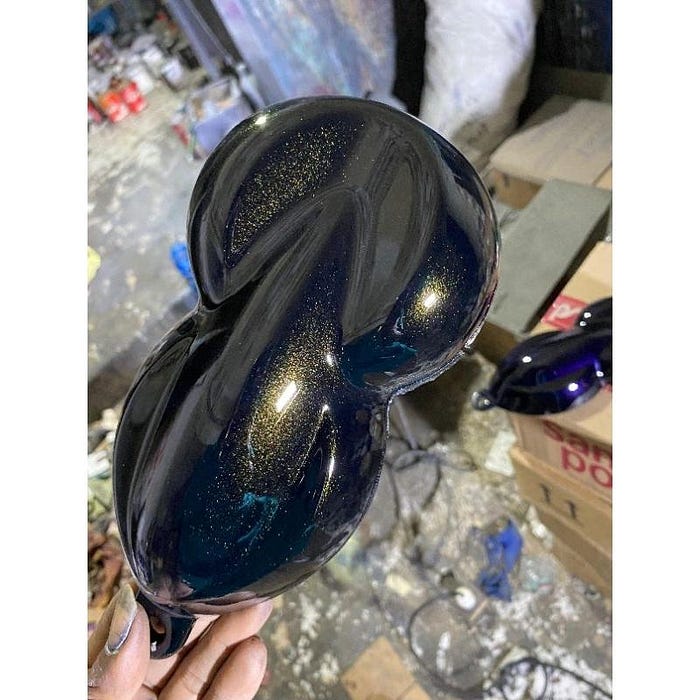Descent from the Cross, Rosso Fiorentino, 1521
Let's start with Fiorentino's Descent from the Cross which was an early example of the mannerist style. The fact that the artist has so many figures crowded in the space and swirling around the edges of the composition takes away from what should be a powerfully moving subject. Instead is is hard not to focus on the fact that everything looks out of proportion and rather unworldly.
Descent from the Cross, Jacopo Pontormo, 1526-28
The sense of other worldliness is heightened in the Florentine painter Pontormo's version of the same subject which still hangs today in Santa Felicita in Florence. This is a large work (313 × 192 cm/ 123.2 × 75.6 in) the bright nearly acidic pastels that Pontormo used seem to glow. Pontormo's intense colors and swirling floating figures are so different from other devotional works, there is a great sense of emotional despair in this painting which seems to resonate with viewers.
The Libyan Sybil, Sistine Chapel Ceiling, Michelangelo
One of the largest influences on Mannerism was Michelangelo. Central Italian painters were borrowing his ideas, however not necessarily the ideas that make the strongest composition or painting. As we can see from one of Michelangelo's figures on the Sistine chapel ceiling he did use some bright colors and sometimes posed figures in a rather unnatural way.
However Michelangelo constantly worked from figures models and life drawing and this wasn't always the case with the various painters who were working in the mannerist style.
Madonna with the Long Neck, Parmigianino, 1534-40
I have written many blog posts about art that I love, honestly this may be the first post I am writing about art that in general I truly dislike. In fact I recently described Italian Mannerism as "the visual equivalent to nails on a chalkboard," but I still feel it is important to write about as it came directly after the High Renaissance and directly influenced Italian Baroque painting.
The painter known as Parmigianino painted many other works, his portraits were quite realistic, but today his most famous painting is a work which has come to be known as the Madonna with the Long Neck. I have seen this in person in the Uffizi gallery in Florence and it is quite jarring. Mary's neck is disproportionately long as are her fingers and her head is disproportionately small. The body of the infant Christ looks like he would be as tall as a much older child. What is going on in this work is not clear, and perhaps the most puzzling part for me is the presence of a tiny man in the bottom right corner. Is he meant to be in the far distance? Or instead is he meant to be a symbol for something and if so for what? This may be one of my least favorite paintings and I find it a huge step stylistically backward from the High Renaissance. However upon seeing Parmigianino's portraiture it is obvious that he could paint in a naturalistic style and was choosing to paint in such an oddly unrealistic way.
Martyrdom of St. Lawrence, Bronzino
San Lorenzo, Florence, 1569
Another trademark of this style is using figures to fill in every conceivable spot in a composition, a term art historians have come to call horror vacui. Literally it means the fear of empty space and Bronzino's fresco of the Martyrdom of St. Lawrence is a perfect example of this idea. There are so many figures and so many simultaneous events going on that the work loses both its impact on the viewer and its ability to tell a clear story.
While I don't personally care for this style, at the time mannerism was considered very elegant and refined. It looks as if Bronzino was trying to emulate Michelangelo's use of many nude figures in his Last Judgment fresco in the Sistine Chapel in the above work.
Pisa attacked by Florence, Giorgio Vasari, 1555-72
detail of larger fresco from the Sala di Cinquecento, Palazzo Vecchio
The hallmarks of horror vacui, unnatural colors and contorted poses can also be found in the paintings of Renaissance man Giorgio Vasari. Vasari wrote the series of books- The Lives of the Artists as well as created hundreds of paintings and designed many architectural works. He truly considered Michelangelo the greatest artist to have lived and modeled his own works in his style. However due to the above mentioned characteristics of Vasari's painting style he didn't create any particularly groundbreaking works or develop a strong style of his own. His fresco cycle in the Sala di Cinquecento in the Palazzo Vecchio of Florence contains so many hundreds of swirling figures that his compositions read as a jumbled mess of people lacking a clear narrative.
If perhaps one factor contributing to this style was the work of the High Renaissance painters, another may be that it came into favor as the Republic of Florence was ending and the Medici Duchy in Florence was beginning. Gone were the days when the major guilds of Florence held competitions and various artists were breaking new ground artistically. Now that the Medici court were the definitive rulers of the Florentines artists were conforming to the unusual new style of Mannerism.






.jpg)


